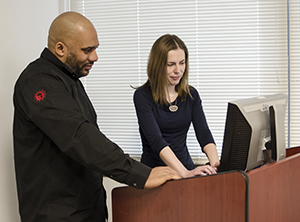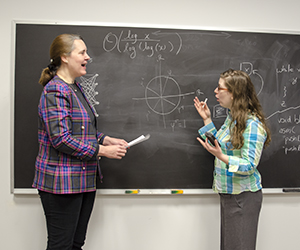The Center for Computing Sciences in Bowie, Maryland, was founded in 1985. Here IDA focuses the skills of some of the country’s leading computer scientists, engineers, and mathematicians to solve intelligence-related problems of importance to national security and on tackling problem sets of interest to the entire computational science world. CCS’s original mission – the development and use of high-end computing – has expanded over the years to reflect global political and technological changes.

Developing imaginative computational solutions employing novel digital technology is one of several long-term themes of work at CCS. The Center is equipped with an impressive variety of hardware and software. The latest developments in high-end computing are heavily used, and projects routinely challenge the capability of the most advanced architectures.
In addition to high-performance computing for cryptography, IDA's work now includes cryptography itself, extensive projects in network security and related cyber issues, signal processing, and emerging algorithmic and mathematical techniques for analyzing extremely complex data sets.

This Center works closely with the National Security Agency (NSA) and with U.S. industry on the development of high-performance computing platforms – an effort that senior technology policymakers believe will require government research and development support. These platforms, aimed at meeting the specialized requirements of the most demanding national-security-related computations, will have to exceed the capabilities of even the most sophisticated computers available today. IDA is uniquely qualified help meet this challenge, because of its depth of experience in NSA’s most advanced computing problems; its history of sustained and vigorous dialog with many of the nation’s leading high-end computer makers; and its active collaborations with the Department of Energy’s Lawrence Livermore, Sandia, and Los Alamos national laboratories.
Researchers at the Center bring their backgrounds in computer science, computer architecture, electrical engineering, information theory, and all branches of mathematics and the sciences to work on difficult scientific problems – the solutions to which are vital to the nation's security.
